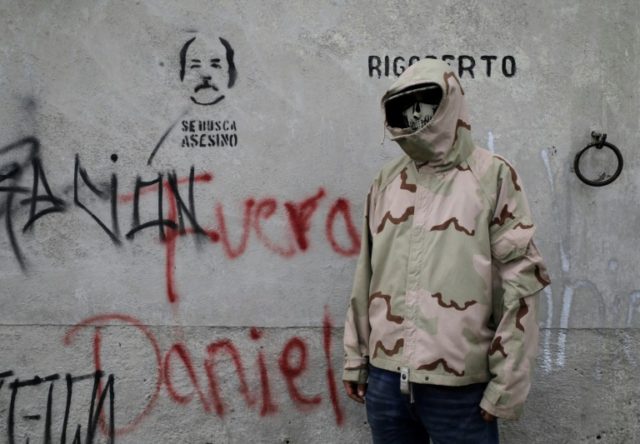Managua (AFP) – Nicaragua’s capital Managua took on the airs of a ghost town Thursday, as a day-long national strike was held to protest two months of violent chaos under President Daniel Ortega that rights groups say has left at least 157 people dead.
Commerce stood still as shops, banks and eateries across the country closed for the “peaceful” 24-hour work stoppage ending at midnight.
Images from the capital’s normally bustling Mercado Oriental market showed shuttered storefronts. Busses and taxis were nowhere in sight.
Brutal violence meanwhile broke out overnight in a number of hotspots including Masatepe — a municipality just southwest of flashpoint city Masaya — where a top rights group reported that four people were killed and several others wounded.
Alvaro Leiva, the head of Nicaragua’s Association for Human Rights (ANPDH), said that in Masaya, a city on the front lines of the anti-Ortega uprising, armed pro-government paramilitaries opened fire at activist-guarded barricades.
Prior to the strike Nicaraguans rushed en masse to gas stations and supermarkets to stockpile food and supplies.
Jorge Esquivel, 60, said he supported the action called by a coalition of student, business and civic representatives, one of the main groups involved in the now-stalled talks with the government.
“We have to make this sacrifice,” he told AFP as he left a supermarket. “In one day we will not die of hunger.”
– ‘Return to dialogue’ –
The work stoppage comes as Nicaragua’s influential bishops work to rekindle crisis talks.
The Catholic clergy on Friday will publicly unveil both their mediation offer and Ortega’s response — something the country has been anticipating for a week.
Managua’s vocal auxiliary bishop Silvio Jose Baez tweeted that the Church supports “the national strike as an act of pressure and social protest.”
The strike “will demand an end to the repression, and support democratic and peaceful change, and a return to dialogue,” he said.
Bishops previously called off talks with Ortega after a march led by victims’ mothers was violently repressed last month.
The Inter-American Commission on Human Rights voiced “alarm and deep concern” over Nicaragua’s “serious human rights crisis” in a statement.
The commission condemned “the excessive use of state force” and attacks on protesters by pro-government paramilitary forces, groups that “the State has the obligation to dismantle.”
– ‘Repressed’ citizenry –
Mario Arana, director of Nicaragua’s Association of Producers and Exporters, estimated the strike would result in a $25 to $30 million economic loss.
The private sector broke with Ortega after the president unilaterally approved a measure — since rescinded — to overhaul that country’s social security system. This triggered the unrest that exploded on April 18 into a mass effort to pressure Ortega to leave office.
Mediating the crisis “has taken more time than the situation really justifies,” Arana said. The people “are being repressed and this strike is to express discontent.”
Activists have erected blockades on more than two-thirds of the country’s roads in a bid to fend off Ortega-backed forces.
The makeshift roadblocks have wreaked economic havoc: even in the unlikely scenario that Ortega “accepts an early negotiated exit” by the end of July, the Nicaraguan Foundation for Economic and Social Development (FUNIDES) estimates the country would post losses of $404 million and bleed 20,000 jobs.
FUNIDES anticipates Nicaragua would lose $916 million in added value and 150,000 jobs by December if Ortega stubbornly stays in office and protests continue.
Ortega’s Sandinista guerrilla army ousted the Somoza dictatorship in 1979, and the leftist leader has remained a major political force ever since.
He is currently serving his third consecutive executive term, due to expire in 2022.
But even some who had fought with Ortega are now turning on him along with his eccentric wife and vice president Rosario Murillo, demanding he move up the presidential election slated for late 2021.

COMMENTS
Please let us know if you're having issues with commenting.